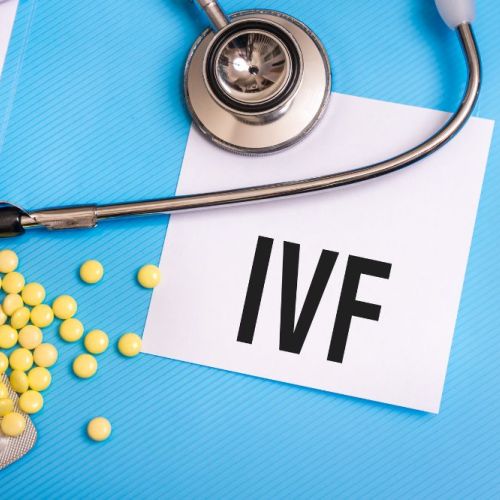How Much Do You Get Paid for Egg Donation?

Infertility is a problem that affects as many as one in eight couples. When a couple has difficulty conceiving, the problem may stem from the woman, the man or both. For some couples, infertility is caused by a woman’s inability to produce eggs or the eggs that are produced are of poor quality.
Egg donation is a precious gift to many people who are experiencing this struggle, and those who are willing to donate their eggs are well compensated. How much do you get paid for egg donation? The amount donors are paid may vary. At the Center for Reproductive Health, donors are compensated anywhere from $5,000 to $10,000 per cycle.
Who Qualifies for Egg Donation?
Not everyone who may be interested in donating eggs is able to do so. As women age, the eggs they produce decline in quality, so donors must be between the ages of 20 and 31. Another factor that’s considered is BMI. Donors are expected to be at a healthy weight and to be nonsmokers.
Potential donors that fit these qualifications are screened for sexually transmitted diseases and drug use. Bloodwork and an ultrasound are done and the health of the ovaries is checked. The family medical history is reviewed to screen for possible hereditary conditions. A brief psychological exam is also done as part of the screening process.
How Does It Work?
Donors that successfully pass the screening are put on birth control pills for two or three weeks beginning with the second or third day of the monthly cycle. The purpose of this prescription is to help to regulate the egg donation cycle. After this is completed, fertility injections begin in order to stimulate the growth of multiple egg follicles. This lasts around ten to twelve days, and during this time, the donor returns to the clinic for additional bloodwork and ultrasounds.
Eggs are retrieved during a simple procedure that usually takes about 30 minutes. Anesthesia is used so the donor doesn’t feel any discomfort or pain. About an hour is spent in recovery after the procedure, and the donor needs a friend or family member to drive them home. The donated eggs are fertilized in a carefully controlled lab environment. Embryos can be implanted into the uterus of the recipient. Donated eggs can also be frozen for future use.
Compensation
Egg donors are uniquely positioned to help the dreams of others to come true and so many couples would be unable to conceive without the help of those who are willing to donate eggs. The generous compensation that donors receive is intended to acknowledge the value of the gift and the time commitment needed to complete the process. The Center for Reproductive Health is glad to be able to offer one of the highest amounts for compensation for egg donation in the Los Angeles area. Call today with any questions you may have or to schedule an appointment.
Eliran Mor, MD
Reproductive Endocrinologist located in Encino, Santa Monica, Valencia & West Hollywood, CA
FAQ
What does a reproductive endocrinologist and infertility specialist do?
Reproductive endocrinology and Infertility is a sub-specialty of Obstetrics and Gynecology. In addition to managing medical and surgical treatment of disorders of the female reproductive tract, reproductive endocrinologist and infertility (REI) specialists undergo additional years of training to provide fertility treatments using assisted reproductive technology (ART) such as in vitro fertilization.
Reproductive endocrinologists receive board certification by the American Board of Obstetrics and Gynecology in both Obstetrics and Gynecology and Reproductive Endocrinology and Infertility.
When should I see an REI specialist?
In general, patients should consider consulting with an REI specialist after one year of trying unsuccessfully to achieve pregnancy. The chance of conceiving every month is around 20%, therefore after a full year of trying approximately 15% of couples will still not have achieved a pregnancy.
However, if a woman is over the age of 35 it would be reasonable to see a fertility specialist earlier, typically after 6 months of trying.
Other candidates to seek earlier treatment are women who have irregular menses, endometriosis, fibroids, polycystic ovary syndrome (PCOS), women who have had 2 or more miscarriages, or problems with the fallopian tubes (prior ectopic pregnancy).
What are the reasons we are having trouble conceiving?
Approximately 1/3 of the time cause for infertility is a female factor, 1/3 of the time a male factor, and the remaining 1/3 a couples’ factor.
At CCRH, we emphasize the importance of establishing a correct diagnosis. Both partners undergo a comprehensive evaluation including a medical history and physical exam.
Furthremore, the woman’s ovarian reserve is assessed with a pelvic ultrasound and a hormonal profile. A hysterosalpingogram (HSG) will confirm fallopian tube patency and the uterine cavity is free of intracavitary lesions. A semen analysis is also obtained to evaluate for concentration, motility, and morphology of the sperm.
Additional work up is then individualized to direct the best possible treatment option for each couple.
What is IVF? What is the process like?
In vitro fertilization (IVF) is the process that involves fertilization of an egg outside of a woman’s body.
The process starts with fertility drugs prescribed to help stimulate egg development. In your natural cycle, your body is only able to grow one dominant egg, but with stimulation medication we can recruit multiple eggs to continue to grow. After about 8-10 days of stimulation, the eggs are surgically retrieved and then fertilized with sperm in a specialized laboratory. Fertilized eggs are then cultured under a strictly controlled environment within specialized incubators in the IVF laboratory for 3-5 days while they develop as embryos. Finally, embryos (or an embryo) are transferred into the uterine cavity for implantation.
Should I have IVF?
Before deciding if IVF is the right choice, it’s important to sit down with an REI specialist to discuss available treatment options. For some people, other methods such as fertility drugs, intrauterine insemination (IUI) may be the best first choice treatment. At CCRH, we believe each individual couple is unique and not everyone needs IVF.
Is the IVF procedure painful?
While not painful, the fertility medications may some side effects including headaches, hot flashes, mood swings, and bloating. The injection sites may also bruise.
Will IVF guarantee a baby?
Unfortunately, no. Many people think once they start IVF it’s a matter of time that they will be pregnant and have a baby. But according to national statistics per the Society of Assisted Reproduction (SART), on average 40% of assisted reproduction cycles achieve live births in women under age 35. The chances of success then continue to decrease with advancing age.
At CCRH, we employ only evidence-based interventions to ensure patient safety and optimal outcome. While we cannot guarantee a baby, we guarantee that you will receive the best, most advanced, personalized care to help you maximize your chance of a baby.
What is the success rate for IVF?
The average IVF success rate (success measured in live birth rate) using one’s own eggs begins to drop around age 35 and then rapidly after age 40. This is due to the decline in egg quantity and egg quality as a woman ages.
Our clinic’s success rate consistently beats the national average year after year.
Do insurance plans cover infertility treatment? How much does IVF cost?
Individual insurance plans often do not have any coverage for infertility treatments. If you have a group plan, you can call members services to see if they have coverage for infertility (including consultation/workup and IVF).
After your consultation with our REI specialist, one of our dedicated account managers with sit with you to go over the cost of treatment.




